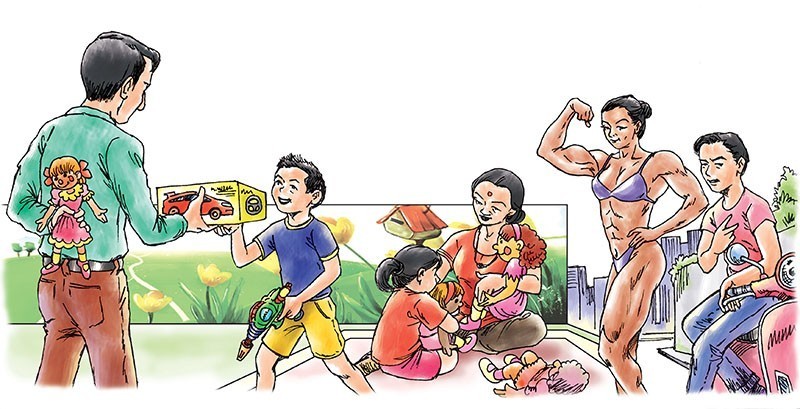Gender roles and equality in Nepali Professional
Nov 2nd, 2023 at 11:01 Blogs Kathmandu 415 views Reference: 863Location: Kathmandu
Price: Contact us
Gender roles and equality in Nepali society.
Gender roles and gender equality have been significant issues in Nepali society, with notable progress made in recent years, but also ongoing challenges that need further attention. Traditionally, Nepal has had a patriarchal society, where gender roles were often defined along traditional lines. However, there have been significant shifts, particularly in urban areas and among the younger generation. Here's an overview of gender roles and equality in Nepali society:
Gender Roles:
Traditional Roles: Historically, Nepali society had well-defined gender roles, with men typically being seen as the primary breadwinners and women as caretakers of the household. Men were often expected to work outside the home, while women's responsibilities centered around domestic work and childcare.
Rural vs. Urban: Gender roles have been more rigid in rural areas, where traditional practices are still prevalent, while in urban areas, there has been greater exposure to modern ideas and a shift towards more equal gender roles.
Education: Education has played a pivotal role in challenging traditional gender roles. As more girls and women receive education, they are expanding their horizons and pursuing careers outside of the traditional roles that were once expected of them.
Gender Equality:
Legal Framework: Nepal has made significant legal progress in promoting gender equality. The country's 2015 Constitution explicitly guarantees equal rights for women and seeks to end gender-based discrimination. Nepal is also a signatory to various international conventions and agreements promoting women's rights.
Women in Politics: Nepal has seen an increase in the representation of women in politics, with efforts to ensure women's participation in decision-making bodies, such as through reserved seats in local governments and provisions in the national legislature.
Women's Empowerment: Various organizations, NGOs, and government initiatives are focused on women's empowerment, education, and economic opportunities. These efforts aim to break down barriers and create opportunities for women to participate in the workforce, access healthcare, and engage in decision-making.
Challenges: Despite progress, there are ongoing challenges, including gender-based violence, unequal access to education and healthcare in rural areas, and entrenched cultural norms that perpetuate discrimination. Women continue to face barriers in many sectors, and there is a need for continued advocacy and awareness campaigns to address these issues.
Changing Attitudes: Attitudes are changing, particularly among younger generations, and there's a growing recognition of the importance of gender equality for the overall development of the country.
While Nepal has made strides in promoting gender equality, there is still work to be done to ensure that these principles are fully realized throughout society, especially in more conservative and remote areas. Efforts must continue to break down traditional gender roles, eliminate discrimination, and empower women to participate fully in all aspects of Nepali society.




